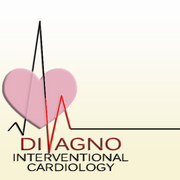How Opioids Affect Your Heart

According to the National Institute on Drug Abuse, opioid overdoses cause the death of more than 130 people daily. This highly addictive class of drugs, which includes prescription medication, as well as street drugs like heroin, has many negative effects on users. For example, the extended use of opioids is bad for your cardiac care and health, potentially leading to heart disease or heart failure. Here’s what you need to know.
How Opioids Impact Heart Health
While heart disease and its symptoms are often associated with older patients, young people with opioid addictions experience heart failure in greater numbers, and researchers believe there is a direct link between heart failure and opioid use. Studies have shown that the use of the drug increases the risk of atrial fibrillation in certain populations. Opioid use is also associated with hypotension, or abnormally low blood pressure, infectious endocarditis, and a prolonged QT interval, which is a measure of electrical pulses within the heart.
Opioids have less direct impacts on people with heart problems. Those who are given a script for opioids and released from a hospital after experiencing heart problems are less likely to return for follow-up care than those who are not given the medication.
How to Stop Taking Opioids
 If you’ve been taking this medication for two weeks or more, medically assisted tapering is recommended. Opioid withdrawal causes a wide range of side effects, including nausea, leg cramps, depression, and insomnia. Additionally, these effects can last weeks and often result in the user taking drugs again to decrease the pain and discomfort.
If you’ve been taking this medication for two weeks or more, medically assisted tapering is recommended. Opioid withdrawal causes a wide range of side effects, including nausea, leg cramps, depression, and insomnia. Additionally, these effects can last weeks and often result in the user taking drugs again to decrease the pain and discomfort.
With the help of a doctor, you can safely lower your dose and minimize any withdrawal effects you experience. Tapering off with a doctor’s care also ensures that your health can be properly monitored and you have the right mental health support during the process. Quitting opioids is not only a physical issue; it's also a mental one. An encouraging environment and the right level of support are necessary for a person to break an addiction.
Led by Dr. Leonard DiVagno, the cardiac care team members at DiVagno Interventional Cardiology, MD, PA are here to diagnose and treat heart issues for patients in Bergen County, NJ. They will establish the current health of your heart using state-of-the-art diagnostic tools, including echocardiograms and MRIs. They treat peripheral artery disease and vascular conditions. Schedule an appointment today by calling (201) 845-3535. Visit the website for more on their cardiac care services.
About the Business


